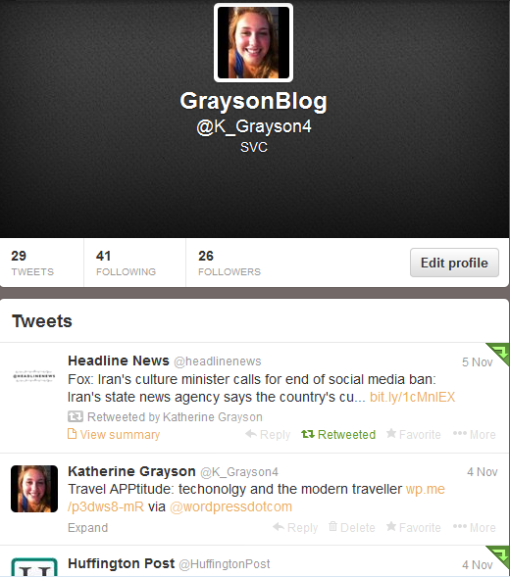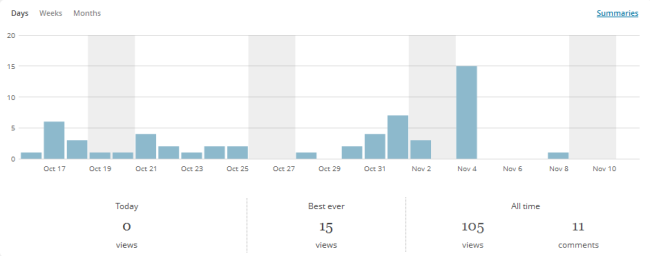Ben & Jerry’s Did It Right

I recently read an article about Ben & Jerry’s social media marketing campaign that caught my eye. Ever hear of “Free Cone Day?” I participated in the event last year at their shop in Manchester, VT. It’s when Ben & Jerry’s serves anyone and everyone with one, free regular cone of any flavor they choose on the first day of their open season. The tactic they chose to promote this event spread the message like wildfire across the U.S. through social media sites like Twitter, Facebook, Instagram and more: the huge component being the use of their hashtag, #FreeConeDay.
They ended up reaching over 10% of the entire population. Ben & Jerry’s goals were the following:
1) Engage a global audience
2) Drive awareness about the event and traffic to their stores
3) Fuel customer participation that would propel word-of-mouth and increase their brand reach
All it took was a paid promotion through Twitter. Once people saw the ad, they shared, and shared…and shared. I find this story so particularly interesting because it shows how incredibly far a small investment in advertising can take a business. As a junior business student interested mostly in marketing, Ben & Jerry’s success is awesome and super exciting. Social media is hugely transforming the business world. Can any of my readers enlighten me about some good marketing success stories? Thanks, and to those approaching finals right now like I am…good luck!
Facebook on a Generational Decline
Recently, I’ve started to notice that more of my friends (ages 18-25) are deleting their Facebook accounts, posting less, responding less frequently to private messages and spending lots of time on other social media sites like Twitter, Instagram, Vine, Snapchat and Tumblr. I’ve also heard some buzz about the number of users nation-wide decreasing as well.
Apart from trying some classic Google searches, I tried to think about what I could personally come up with as for why people might be losing interest. I generated a list of possible annoyances my fellow generation may have experienced (that I feel mutually annoyed about), causing them to give up or decrease Facebook use:
- Increased use of sidebar ads and promoted pages that show up at any given time
- Facebook’s tendency to spy on your other Internet browsing activities, and show you ads according to these activities (a pair of boots I was thinking of buying were displayed on my sidebar from Overstock.com for about two weeks)
- By clicking on someone’s profile one time, Facebook thinks you want to see that person’s every post or activity displayed on your newsfeed – your newsfeed then shows the activity of about 20 random people out of the 500 you are friends with, plus a small handful of the people you interact most with
- Most of what people post is about some silly status game, where if you “like” the post, they will assign you what to do next in the game (i.e. List a number of facts about yourself, list things you like, or dislike that all start with the letter “B”, etc.)
- Frequent game invitations that you have no interest in
- The increased use by adult and elderly family members
- The increased rate of employers searching to find out about us through Facebook profiles and tagged pictures, which supplies anxiety
- Has become heavily business-focused – every business is on Facebook, promoting and sharing – it feels like a world full of ads at times
- Left and right, it feels like a space for people to brag about how cute their baby is, how nice their new house is, how gorgeous their vacation is, or how healthy and beautiful their relationship is…
(Feel like you can relate, now?)
There are probably more reasons that I haven’t noted personally, but from what I’ve come up with, I see plenty of reason for the site to slowly phase out of the interest of younger generations. As more and more social networks are generated and spread throughout the world, the more options people have, leaving less need for tolerance. People freely drop one account and replace it with another, fresher, more innovative one.
Adults and businesses are using Facebook as often as ever, so it won’t phase out at any foreseeable time in the future. In fact, according to Forbes, Facebook stocks have increased by 2.23% today.
Sources
Marks, Gene. “Why Facebook Is In Decline.” Forbes. Forbes Magazine, 19 Aug. 2013. Web. 20 Nov. 2013.
Bosker, Bianca. “Facebook’s Rapidly Declining Popularity With Teens In 1 Chart.” The Huffington Post. TheHuffingtonPost.com, 23 Oct. 2013. Web. 18 Nov. 2013.
Privacy in the Workplace: When Facebook Gets You Fired

We have all heard stories of people who lose their jobs because of a statement, photo, or video posted to Facebook. However, now that social media is growing popular through so many other platforms such as Instagram, Twitter and Vine, there are more social applications for our employers to explore when deciding to hire, or who to fire from their companies.
In April 2012, the Social Networking Online Protection Act was introduced in the House of Representatives, which will potentially exist to “prohibit employers and certain other entities from requiring or requesting that employees and certain other individuals provide a user name, password, or other means for accessing a personal account on any social networking website” (GovTrack.us). Though it has not been passed, it draws attention to the fact that it is currently legal for employers to require access to our personal accounts. While privacy is such an important yet unprotected issue, we must be extremely careful what we allow to be displayed on social media.
Currently, Internet monitoring is virtually unregulated and, unless an individual company policy specifically states otherwise, an employer may listen, watch and read most workplace communications (Privacy Rights).
Huffington Post offers an interesting read about 13 Controversial Facebook Firings. One instance of a Facebook firing was when a doctor posted about a patients condition, without mentioning any names. The hospital board decided that it was enough information for someone to understand whom the doctor was referring to, so she was fired and reprimanded by state regulators. She also had to pay a $500 fine and attend a continuing education class following her social media act.
What we can learn from this is that we should think and re-think what we post before we make it public (including if your account is extremely private) because even if it does not logically seem to break any rules or offend anyone, it still can. Another situation in the Huffington Post article mentioned how someone’s close Facebook friend reported her to her employer and caused her to lose her job. So far, as regulation does not help much in terms of Internet privacy, we must post carefully and consider who may be watching at all times, especially since there are currently so many social media platforms for employers to investigate.
Sources:
“H.R. 537: Social Networking Online Protection Act.” GovTrack.us. GovTrack, n.d. Web. 15 Oct. 2013.
“Fact Sheet 7: Workplace Privacy and Employee Monitoring.” Privacy Rights Clearinghouse. n.d. Web. 15 Oct. 2013.
Emerson, Ramona. “13 Controversial Facebook Firings: Palace Guards, Doctors, Teachers And More.” The Huffington Post. TheHuffingtonPost.com, 17 Oct. 2011. Web. 15 Oct. 2013.
Internet linking us to social relapse and obsession
The trend of Internet obsession in current society has been quickly creeping in for years. It seems to be taking over all aspects of our lives. According to Anthony Carboni of Discovery News, Internet obsession happens in the same parts of our brain that love gambling (Dvalidze). The obsessive, or addictive part relates to gambling because pulling the lever on the gambling machine is the same as rolling the scroll button for our newsfeeds on Facebook. He also mentions how the Internet is full of useless information that can waste our time, so we continue to browse and search because when we find what we seek, it’s a great feeling: a feeling comparable to that of winning while gambling (Carboni).
Another highly addictive part of the Internet and social media is when people take interest in your online activities. There is a strong desire for popularity, for people to take interest in your posts. When we post something on Facebook or Twitter, “likes,” “retweets,” “favorites” and comments make us feel really good (Carboni). People publicly remark on our statements or activities, which means they must care, right?
Well, either way, I don’t think it should mean as much to us as it does. David Wygant of the Huffington Post makes an excellent point in his article entitled “Is Twitter and Facebook the end of Society?” He discusses the lack of personal contact most people face on a daily basis compared to how often we socialized just a few years ago, “we’ve become a society that’s so reliant on technology we’ve forgotten how to communicate with each other” (Wygant).
There is a definite issue with people not being able to part with their smart phones or computers. Whether it is because they are afraid they’re missing something important happening, they are trying to avoid an awkward situation, or they just feel uncomfortable without a phone in their hands, it is all unhealthy for their social skills, eyes and creativity.
Sources:
Dvalidze, Irina. “Where Internet Addiction Comes From (VIDEO).” The Huffington Post.
28 May 2013. Web. 02 Oct. 2013.
Carboni, Anthony. “Discovery News.” DNews. Discovery News, 30 May 2013. Web. 02
Oct. 2013.
Wygant, David. “Is Twitter and Facebook the End of Society?” The Huffington Post.
N.p., 11 July 2013. Web. 02 Oct. 2013.




